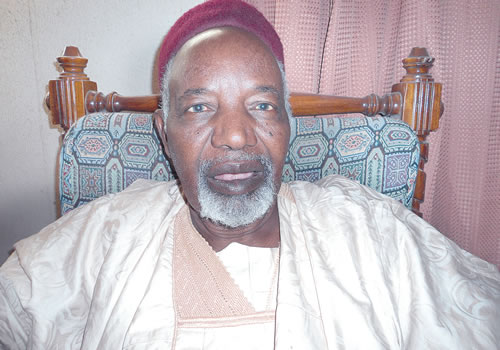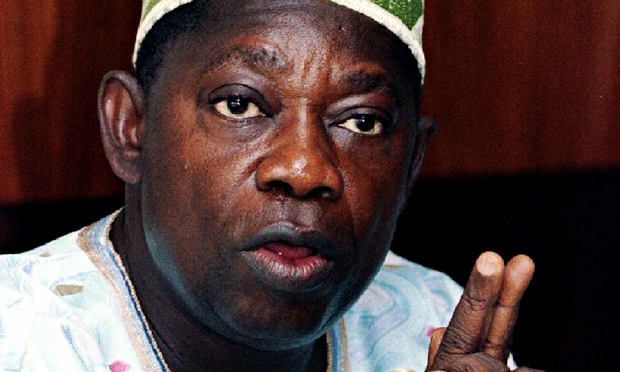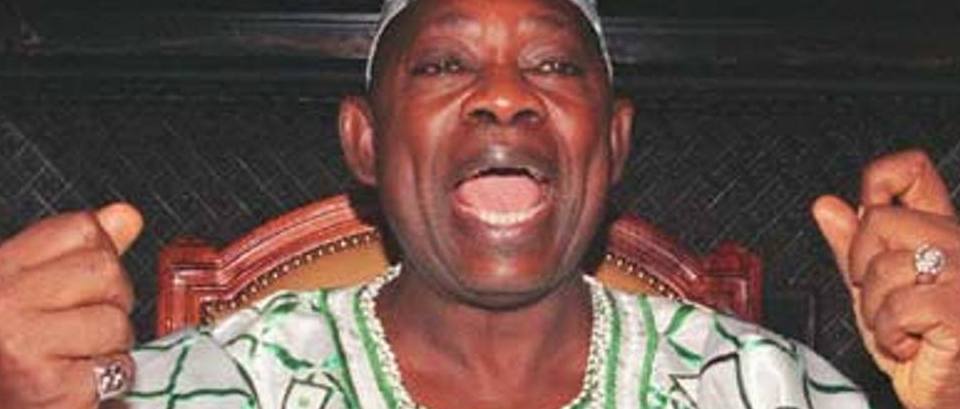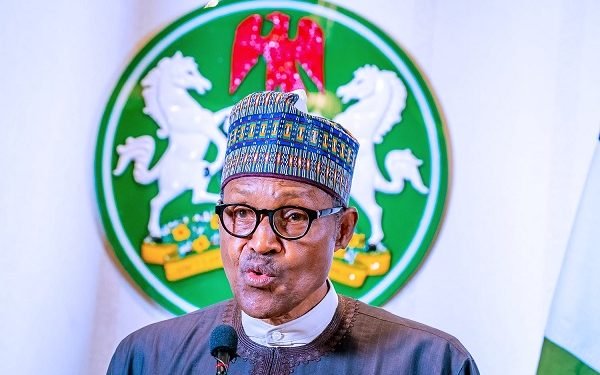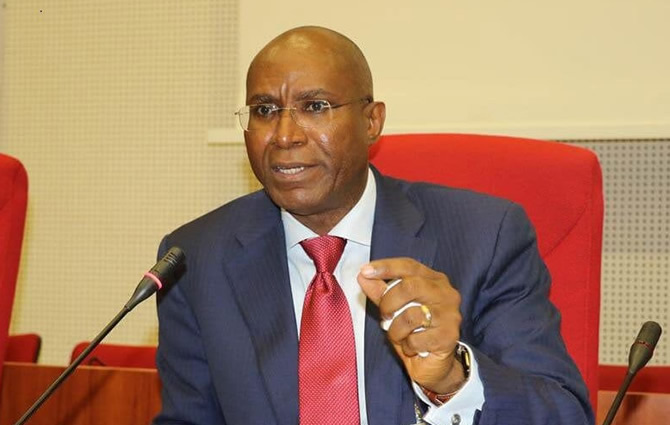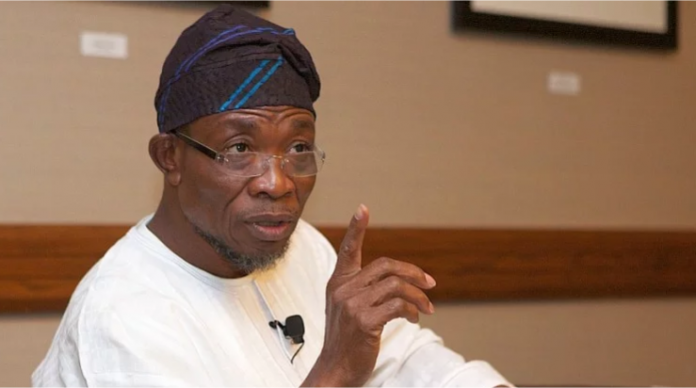On 6th June 2018, President Muhammadu Buhari made an epoch-defining announcement, “Dear Nigerians, I am delighted to announce that, after due consultations, the Federal government has decided that henceforth, June 12 will be celebrated as Democracy Day. We have also decided to award posthumously the highest Honour in the land, GCFR, to the late Chief MKO Abiola, presumed winner of the cancelled June 12, 1993 elections.”
Today marks another time for Nigeria to celebrate democracy, especially that day the late Chief Moshood Abiola won Nigeria’s freest and fairest presidential elections which the military annulled and several governors, political leaders, parties and pressure groups have all bared their truths on the democratic journey of Nigeria so far.
June 12, a milestone for democracy, says Tinubu
The National Leader of the ruling All Progressives Congress, Asiwaju Bola Tinubu, described the annulled June 12, 1993, presidential election as a milestone for democracy in Nigeria.
He said “The election of June 12, 1993 changed Nigeria profoundly. That it would have this deep and positive effect was not always certain. Many people laboured, struggled and sacrificed for democracy. They fought not that we would have Democracy Day but that Nigeria might exist as a democracy every day.
“We dare not forget how we got to this point. Planting the seedlings of democracy required much toil and sacrifice. Many potent forces tried to prevent both the planting and the harvest.
“People like late Dr Beko Ransome Kuti, the late Gani Fawehinmi, Baba Omojola, the late Pa Rewane, the late Pa Enahoro, Baba Ajasin, Pa Adesanya, Baba Adebanjo, Prof. Wole Soyinka, Prof. Bolaji Akinyemi, Femi Falana, members of the civil society groups, student-activists and others fought hard and struggled mightily on our behalf. Many laid down their lives that we may have this brighter moment. Many people who we do not even know gave of themselves and lost life or limb to bring this moment to pass,” Tinubu said.
The former Lagos State governor commended the President, Major General Muhammadu Buhari (retd.), for having the political courage to make June 12 Democracy Day.
Repairing the of damage of June 12 to Nigeria more than a declaration of a holiday – Afenifere
On its part, pan-Yoruba socio-political organisation, Afenifere, said Nigeria would not progress except the country returned to the spirit of the June 12, 1993 presidential election.
Afenifere made its submission in a statement by its leader, Chief Reuben Fasoranti, entitled, “June 12: A time for reflection on nationhood.”
It said, “We have to return the faith of our people in the ballot box like June 12 and restructure the polity so we can make progress under federalism.
“While we acknowledge the official recognition that was done last year, we insist that repairing the damage the annulment did to the polity is more than a holiday.”
PDP hails Nigerians, tasks Buhari on electoral reforms
Meanwhile, the Peoples Democratic Party has hailed Nigerians for their resilience and sacrifices made to promote democratic ideals since the annulment of the June 12, 1993 presidential election.
The opposition party also urged the President, Major General Muhammadu Buhari (retd.), to take steps to reform the electoral system by using his remaining time in office to restore credibility to the electoral process.
The National Publicity Secretary of the PDP, Kola Ologbondiyan, said this at a media briefing in Abuja, on Thursday.
Ologbondinyan said, “Our party demands that President Buhari speak to the issue of amendments to the Electoral Act in his June 12 address and to, within the next 14 days, initiate the process of returning the Electoral Act Amendment Bill to the National Assembly, with a strong commitment to sign it into law immediately it is passed by the legislature.”
Ologbondiyan said it was the opinion of the PDP that the failure to initiate an electoral reform would amount to a deliberate plot by the APC to kill Nigeria’s hard-earned democracy “and return our nation to a state of nature where the will of any individual, supported by bandits and vagabonds, will become the norm.”
June 12, the metaphor of free, fair poll – Lawan
The President of the Senate, Ahmad Lawan, described June 12 as a metaphor of a free and fair election.
Lawan said, “The heroic demonstration of patriotism by the Nigerian voters on June 12, 1993 will continue to inspire generations of their compatriots to promote national unity and defend democracy in Nigeria.
“Having come this far in our journey as a nation, we have no reason to doubt our ability to govern ourselves and attain our great potential as a nation.”
Nigeria has learnt a lot since 1999 – Gbajabiamila
The Speaker of the House of Representatives, Femi Gbajabiamila, congratulated Nigerians on the occasion of this year’s Democracy Day.
In a statement by his Special Adviser on Media and Publicity, Lanre Lasisi, the Speaker said he believed that Nigeria had learnt a lot in the last 21 years of uninterrupted democracy.
Gbajabiamila called on Nigerians to remain united in the face of daunting challenges facing the country and urged the people to pray for the country to overcome its challenges.
The Aare Onakakanfo of Yorubaland, Iba Gani Abiodun Ige Adams, has described the June 12, 1993, annulled election as the most defining moment in Nigeria’s history, saying the struggle to free Nigerians from the shackles of bondage will continue until the country is restructured into federating units
Democracy yet to take its roots in Nigeria- Gani Adams:
Adams, in a statement on Thursday by his Special Assistant on Media, Kehinde Aderemi, expressed joy that part of the dreams of the Oodua Peoples Congress under his leadership has been realised with the celebration of June 12 as the authentic democracy day.
The Yoruba leader, however, regretted that despite the sacrifices of the activists and pro-democracy groups, democracy is yet to take its root in Nigeria.
He said Nigeria can only get it right with true federalism, pointing out that the only way out of the political logjam is to let the federating states develop at their own pace.
Aare Adams said: “When the federating units are allowed to develop at their own pace, there will be mutual benefits and progress. The federating states will be geared towards achieving the best for the people at the grassroots. This is possible when there is healthy competitions among the federating units. The issue of security and state police would be taken care of without fair or favour. That is how it is in other climes where democracy thrives”
“It is good that our democracy is evolving, but sadly, it is not yet Uhuru because this is not the kind of democracy we fought for during the June 12 struggle. It is far different from what we are seeing now. The struggle for the actualisation of the June 12 mandate given freely to the late MKO Abiola in a free and fair election then was a long, hard battle to survive the military onslaughts.”
Iba Adams went down the memory lane, saying: :Those of us that are alive today still remember those moments with a lot of regrets, and surprises. We think of how we are able to survive those trying periods. The journey for this democracy has been a tortuous journey. Today, our democracy is at best, one step forward and five steps backward. But in all, we thank God that we are still alive to tell the story.
“We got it wrong right from the outset. We got it wrong with leadership. Nigeria has been crippled by bad leadership. This has always been our problem. All our leaders have lost touch with the people at the grassroots, that is why we must continue to press for justice until we get the best for Nigeria and Nigerians.”
Aare Adams also said the lesson of June 12 election is indeed for a lifetime for everybody, stressing that no matter how long the long arm of lies persist, truth will one day prevail.
Aare Adams admitted that though the Coronavirus pandemic has restrained the Oodua Peoples Congress from celebrating the annual June 12 symposium, the group remains the only formidable one that has been celebrating the June 12 anniversary since 2001.
He added: “To the glory of God, OPC has been a vocal voice requesting for the authentication of June 12 as the official democracy day. So, whether our effort is being recognized today or not, it is on record that we are part of the success stories of this democracy.”
Gov Sanwo-Olu to host Tinubu, Soyinka, Blair
To commemorate this year’s Democracy Day, the Lagos State Governor, Babajide Sanwo-Olu, his deputy, Dr Obafemi Hamzat, will today hold a Democracy Day webinar for youths in Lagos.
They will be joined by Tinubu, and Nobel laureate, Prof. Wole Soyinka, at the event which will hold via Zoom at 12pm.
Also to join are the Special Adviser to the President on Political matters, Babafemi Ojudu; former Lagos State Commissioner for Information and Strategy, Chief Dele Alake; publisher of Ovation magazine, Dele Momodu, daughter of the late Chief MKO Abiola, Dr Hafsat Abiola-Costello, and Cherie Blair, wife of former UK Prime Minister.
Abiola remains a symbol of June 12 struggle – Atiku
Former Vice-President Atiku Abubakar said the late Chief Mashood Abiola had continued to be the symbol of the June 12 struggle 27 years after the event.
While blaming Nigeria’s problems on the failure of leadership, Atiku urged citizens to make better choices when recruiting people into public offices.
He said, “Between 1999 to the present time, our democracy has thrown up all shades of characters at the leadership levels. Many, if not all of them, have tried their best to deliver good governance to the country. But the results of their efforts, judging by what we have at hand today, clearly show that our best has not been good enough thus far.
“It is clear that the problem of leadership is at the epicentre of governance issues that has afflicted Nigeria since the restoration of this democratic dispensation.
“To get at this problem would require the voting citizens of the country to undertake a more critical evaluation of national leadership recruitment – a rare gift which democracy guarantees through the instrumentality of periodic elections.”
June 12: Symbol of Nigeria’s resolve to stay together – Osun Gov, Oyetola
The Osun State governor, Adegboyega Oyetola, has described the declaration and recognition of June 12 as Democracy Day as a tribute to courage.
Oyetola also attributed the day as a symbol of Nigerians’ collective resolve because differences and sentiments are set aside and people speak as one in achieving a collective vision even in the face of the stiffest opposition.
The governor made this known in a statement by his Chief Press Secretary, Mr Ismail Omipidan on Thursday.
Oyetola congratulated President Muhammadu Buhari for actualising what he termed “long yearnings of the people,” adding that June 12 is a reminder that Nigerians have what it takes to defend their democracy.
He said, “the acknowledgment of June 12 as Democracy Day is a tribute to courage. I, therefore, extend deep gratitude to President Muhammadu Buhari for actualising the long yearnings of the people for the recognition of the day they freely gave their mandate to a candidate of their choice, Chief Moshood Kashimawo Olawale Abiola, in an election regarded worldwide as the freest election in Nigeria.
“June 12 is symbolic of our collective resolve to set aside our differences and sentiments and speak as one people to achieve our collective vision even in the face of the stiffest of oppositions. It is a reminder that we have all it takes to defend our democracy.”
MKO Abiola, martyr of democracy – Ogun APC
The Ogun State chapter of the All Progressives Congress described the acclaimed winner of June 12, 1993 presidential election, Bashorun MKO Abiola, as a “martyr of democracy, who paid the supreme price for the democracy we now enjoy in Nigeria.”
The declaration was made in a statement on Thursday by the Assistant State Publicity Secretary of the APC Caretaker Committee, Mrs Olusola Ogunsanya, and the party chairman, Chief Yemi Sanusi.
The party also described the late Abiola as a “worthy ambassador of our state, and emblems of the many contributions of her citizens to national development in many spheres of life, which we are very proud of.”
